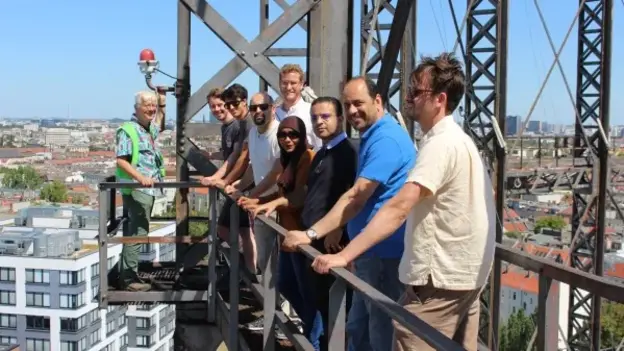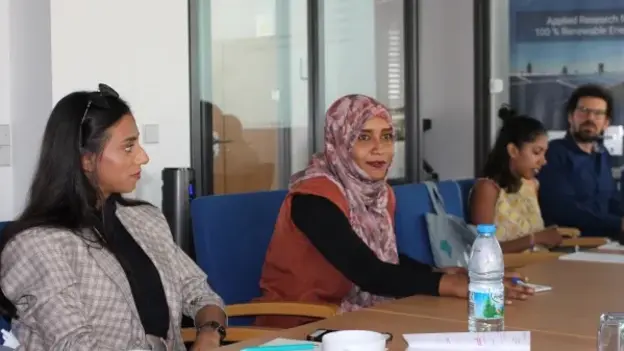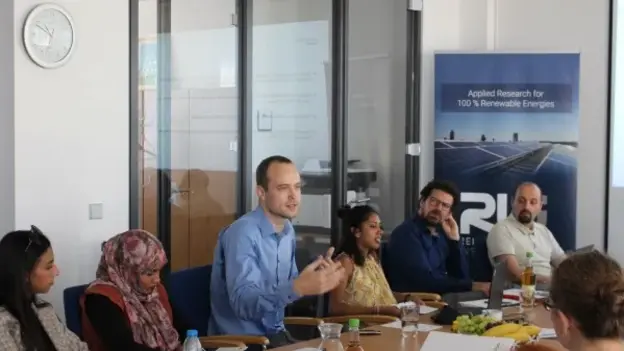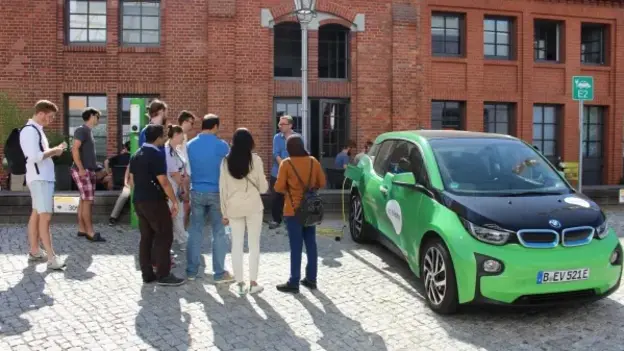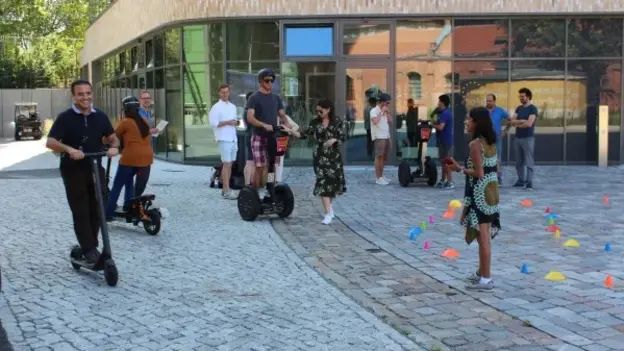Working Group Meeting
Governance of Smart Mobility Data
Workshop
With the rapid development of smart cities, concerns about data ownership are growing. Through a myriad of stakeholders, such as local office bodies, sharing providers or established companies, the volume of collected data is growing. However, little of the abundant data is directed towards the common good: private entities aim for profits, and public agencies lack efficacy in managing data. Concurrently, the 'open source' and 'open data' movements are gaining more ground and have succeeded in offering a technologically and legally workable 'open' technological framework for big data whereby a wider, safer, and more accountable data integration is increasingly possible. However, only with strong public policy and transparent governance a management of the digital commons can be achieved.
Understanding Data as a Common Good
So far, there is only little research on how to provide adequate governance principles and infrastructures for managing data integration and establishing their usage for the public good. Such a governance infrastructure is necessary to enable more data-driven support of public-oriented initiatives while safeguarding individual and collective security. This challenge is crystallized in cities where mobility-as-a-service entities, public agencies, and providers of volunteered geographic information all add to myriad qualities of big data. Big data has originally been conceptualized as a common good enabling for instance commons-based peer knowledge production for local initiative. Understanding data as a common good therefore makes the case for the existence of a collective stake to be governed, as opposed to leaving the resource vulnerable to expanded access by competing users and motives.
Interdisciplinary Perspectives for Commons-based Governance of Smart Data
With the workshop, AGYA members together with external experts from the fields of engineering, energy and environmental studies, economics, information and communication technology, geography, physics, philosophy and political science, initiated a discussion on how to reconfigure the roles needed to govern the current data processes and relationships with a focus on the common good, and how to integrate them with current discussions on urban commons.
Recommendations
The key topics to be addressed in this workshop were (1) privacy and data protection as well as (2) sustainability and energy consumption. The participants exchanged perspectives on urban mobility, technical infrastructure, data governance and justice as well as related ‘real world problems’, such as the lack of user’s awareness about data privacy and privacy terms, or missing policy regulations, e.g. for smart mobility applications. A brainstorming session therefore provided the workshop participants a suitable platform to develop feasible solutions for the identified problems. The scholars recommended:
- A municipal non-profit organization in control of local data as a necessary step towards a more commons-based governance infrastructure of big data.
- Technical solutions, such as the development of apps to help consumers restrict downloading through filtering the Terms and Conditions (TaC) were discussed in this context.
- The development of an ‘all-in-card’ for charging money to replace the concept of validation by data (e.g. at carsharing services). ‘Surrending one’s data should never be the condition to have access to services!’, explained Zakia Soomauroo, PhD student at the Reiner Lemoine Institute (RLI) in Berlin.
- Also Machine Learning (ML) was identified to be a promising approach to tackle not only privacy issues, e.g. through meta-analysis of TaCs or key privacy settings in order to find unnecessary requirements, but also climate change and growing energy insecurity with ML enabling to generate climate solutions from big data.
New Questions for Future Research
The knowledge exchange on research problems, gaps and methods as well as on solution ideas in turn gave rise to new questions for future research: How to raise awareness towards data and services’ energy consumption and CO2 emissions? How to deal with the diversity of scenarios? What are and how to define criteria for low energy consumption in terms of smart mobility data and services?
As a result, the 2-day workshop showed clearly that the successful governance of big data, especially in upcoming smart cities, will bridge the gap between
- user control (e.g. decentralized payment with block chain technologies) and
- data availability for public policies (e.g. data donations by users to municipalities to improve transport planning with urban computing).
Berlin's Innovation Landscape
In addition to the fruitful interdisciplinary and cross-cultural exchange, the workshop moreover provided its participants insights into Berlin’s innovation landscape: On an innovation tour at the EUREF-Campus Berlin, a Europe-wide unique real laboratory for the energy revolution, the Arab and German scholars learned about technical solutions (e.g. charging columns, wind turbines, electric cars), energy-sufficient constructions, intelligent energy supply and concepts of networked mobility used at the campus, but also experienced smart mobility solutions in action during test drives with electric vehicles (EVs).
Poster and program design of the workshop were developed by design student Zoya Fathema Jindran from the Ajman University in the United Arab Emirates.
- Disciplines Involved
- Computer Sciences, Engineering
- Cooperation Partner
- Reiner Lemoine Institute (RLI), Germany
- Venue
- Reiner Lemoine Institute (RLI), Germany
- EUREF-Campus Berlin, Berlin, Germany
- Project Title
- A Digital Commons: Governance of Smart Mobility Data
- Year
- 2019
- Funding Scheme
- Working Group Meeting
- Working Group
- Innovation
- Countries Involved
- Germany, Algeria, United Kingdom
